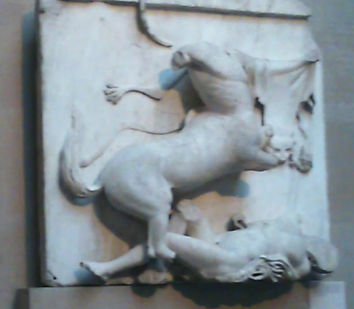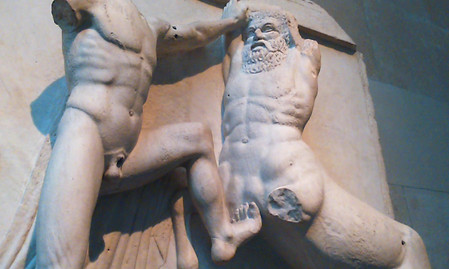London - Undemocratic, this is the right word describing the British electoral system which excludes its citizens living abroad and EU citizens in UK from general elections. Look at the electoral register and see people from Antigua, Bahamas, Botswana, Zimbabwe and all the Commonwealth countries can have their say on who rule the UK.
The ‘post-imperial’ electoral system gives ex colonies citizens the right to vote in the country which once exploited their own, and this is absolutely right and fair. But it is utterly unjust citizens from the neighbouring countries living in the UK and the British abroad (who lose the right to vote after a number of years) are excluded from the democratic process by the law since 1969. Why? Is it just for chance or this is the result of the British crossparty establishment's 'domestic defence policy'?
The answer is complex and touches the very founding process of democracy. Every political establishment, in every country, defends itself from whom considers, and wrongly classifies, as defector. This means those who flee their countries of origin are perceived as potential political defectors able to detect the structural, systemic failures of political systems in the countries they left: people emigrate when understand there is no hope for change. But why then Indian or Pakistani, for instance, living in the UK take part to national elections and have MPs representing their communities in the House of Commons while European origin and British expats don't?
Firstly because they are from former colonies and Commonwealth citizens, secondly because nearly all Commonwealth countries (except for Australia, Canada, New Zealand and perhaps few others), are not democracies comparable to the EU ones (exceptions here as well starting from Hungary) therefore people from Nigeria or Malawi have de facto a different political awareness and might not be able to promote changes in the structural system of an advanced democracy such as Britain.
Today the campaign to give British citizens living abroad and EU citizens in UK full political rights launched by Another Europe is Possible, The 3 Million and British in Europe marks a radical change in support of democracy in Great Britain, and goes far and beyond Brexit. The fight is for a fair and just society representing all and for a political system no longer allowed to hide and perpetrate exclusion in the name of a dead ‘post-imperialist’ establishment.
Let Us Vote: campaign and petition launched by Another Europe is Possible, British in Europe and The3Million



African unsustainable development between EU grants and China loans
.png)
London 1 September 2019 - Visitors of British Museum didn't know about it yet: Greek government launched an ultimatum to get the friezes, pediments and metopes of the Parthenon back to Athens. The latest news on the contended Elgin Marbles comes from the Observer where on Sunday the Greek Prime Minister Kyriakos Mitsotakis spelt his stony words: "I don't think Britain should fight a loosing battle. Eventually this will be a loosing battle".
It definitely sounds like an out-out, now facilitated by the context of Brexit.
We interviewed some arts lovers at the museum: all said they should go back where they belong to. But 'belonging' could be a complex matter when it comes to legal challenges. In the very first place when the British ambassador to the Ottoman Empire, the Earl's of Elgin, removed the sculptures by Phidias from the Parthenon in 1805, he claimed he had a licence issued by the Empire's authorities, but no prove of this has been found over two centuries. The appropriation then has always been held as a theft by many historians. Following bankruptcy the Earl's of Elgin sold in 1816 the Marbles to the government.
The 2.500 years old sculptures of Periclean age, attract thousands of visitors every day at the British Museums, they are an icon of culture and one of the most important collections. "Each year millions of visitors, free of charge, admire the artistry of the sculptures and gain insight into how ancient Greece influenced- and was influenced by- the other civilisations that it encountered. The Trustees firmly believe that there is a positive advantage and public benefit in having the Sculptures divided between two great museums, each telling a complementary but different story." the Museum states.
In 2016 the first-ever legal attempt to force the British government to return the Marbles to Greece has been a lost battle: the European Court of Human Rights didn't even hold the hearing as the case happened over two centuries ago. Now Greece is going to fight back showing a classical Olympic balance in advising the counterpart to refrain from their warlike instincts:
The fight between Lapiths and Centaurs carved in the metopes tells wisdom will prevail over animal instinct for possession. It's the meaning of Parthenon itself, the temple of Athena, goddess of wisdom, law and justice, erected to celebrate the victory of the democratic Athens over the Persians invaders. But the myth suggests also what British imperialism, with its violent instinct of possession disguised as expansion of civilisation, actually has been. The marbles should go where they belong, but it's also true they are desperately needed in Britain right now because of their deep meaning in a moment democracy and wisdom are hit by the centaurs' arrows.





